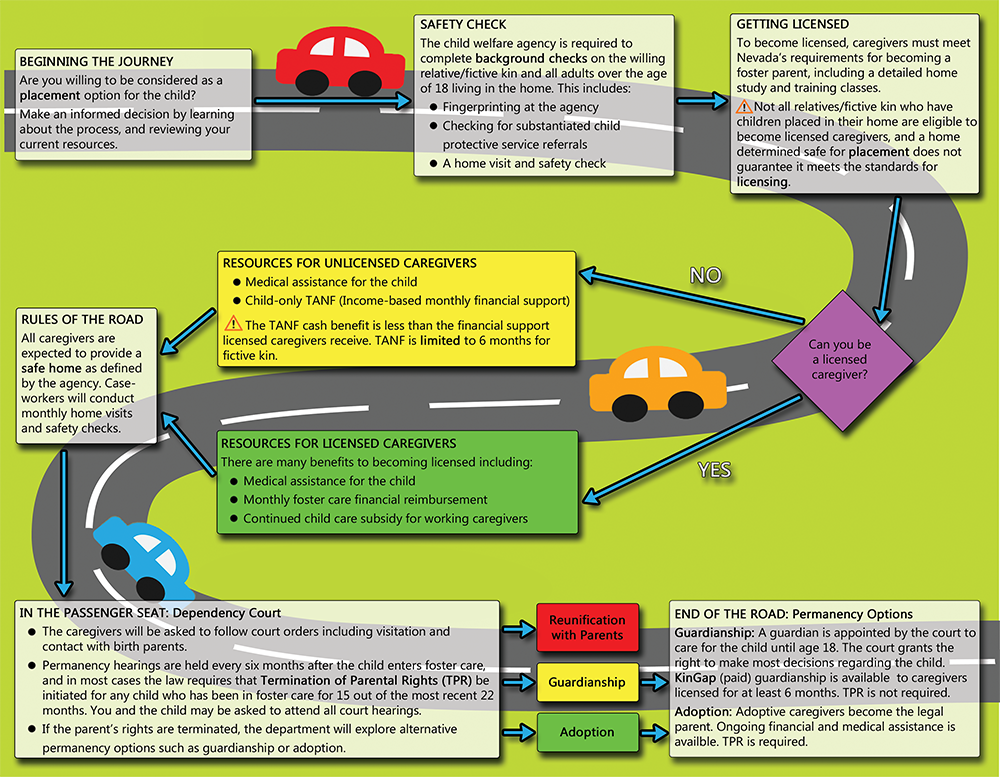Kinship care is when a relative or other adult (fictive kin) who has a bond with the child agrees to provide full-time care, nurturing, and protection for the child who has been separated from their parents due to neglect, abuse, death, or another traumatic situation where the Child Welfare Agency is involved. Kinship care is very important in supporting children to remain in a loving family environment.

The Kinship Guardianship Assistance Payment (Kin-GAP) Program. The Kin-GAP program is a permanency option for children in long-term placement with relatives, which provides a monthly payment to the relative guardian.

8 Million Children Live in Households Headed by Grandparents or Other Relatives (fosterkinship.org)
Some Kinship Caregivers are eligible for Payment Allowances:
Eligibility Requirements include the following:
Relative household members must have a combined income below 275% of the Federal Poverty Level AND the child(ren) must meet the age, citizenship, and resource eligibility requirements for the Temporary Assistance for Needy Families (TANF) program.
Nevada's Just in Time Training is a web based service program designed to connect foster parents, kinship or other caregivers with training, peer experts and other resources. Questions are answered and practical solutions to care for children are discussed - all from the comfort of your home or office.
If you have difficulty accessing any material on this site, please contact us in writing and we will work with you to make the information available. You can direct your request to JITSupport@USF.edu.